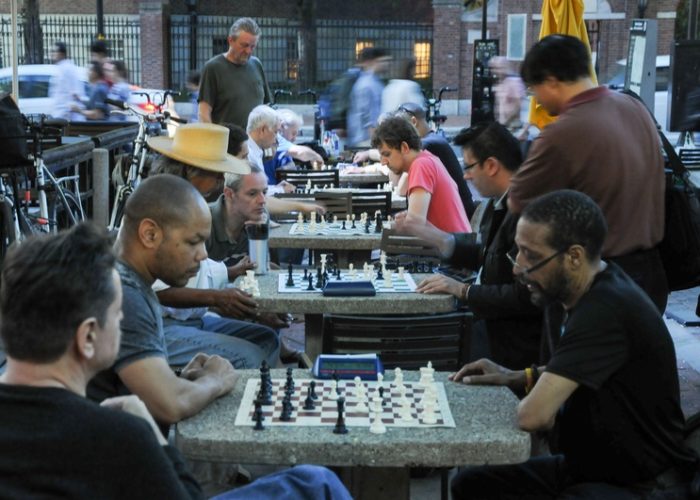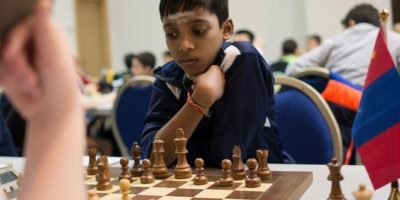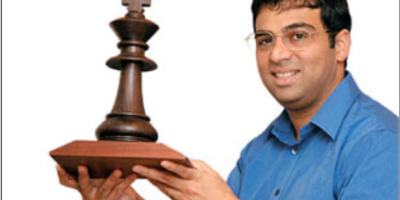Chess Psychology: Brings Out Best Of Physical, Mental Ability
Chess is regarded as one of the most popular indoor games in the world. But, how many of us actually consider it as a sport? Well, not many. Most of us just think that chess is just another mind game. And, there is rarely any physical movement, so the question that often bothers us is, how can it be a sport? To put it simply, it is a matter of one’s perspective. How I see chess is very different from what the rest of the majority of people.
Not an easy sport to deal with
With the experience of playing competitively for the past decade, I feel that chess is by no means, an easy sport. There are close to over millions of positions that could be played out in a single game! If that does not surprise you, then let me put it as a million possibilities in just the opening game, perhaps the first 20 moves itself. It requires precise calculation, clear thinking, and immense tactical ability to win a game. However, to lose a game all one needs is a simple error, and that’s it.
Chess is proven to improve logical reasoning and makes memory sharper. It helps concentrate and focus better. More than anything else, it even helps reduce the risk of Alzheimer’s in the future. Studies have shown that by playing chess, school children can improve their grades and their overall performance.
Physicality beyond thought
Some people go to the extent of saying that one game of chess is equivalent to three games of football. The obvious question that pops is “How is this even possible?” Well, the answer is simple chess requires both physical and mental agility. How can a chess game require physical agility? Chess at the professional level requires a player to sit for more than five to six hours in a classical set-up. In fact, the World Championship Match between Garry Kasparov and Anatoly Karpov in 1984 lasted for more than six months. However, with no clear result in sight even after six months and 48 excruciating games the championship was aborted by declaring Karpov as the de facto winner.
Even the present day players like Magnus Carlsen, Viswanathan Anand, and others take to different forms of physical activity to keep in shape for their matches. Each tournament lasts for close to two weeks and sometimes even three.
The present world championship cycle was for three weeks and needs a lot of stamina to compete. With the mental strain that each match can have on the player, it is important for the player to cool down after each game to maintain his or her form on the board. An important example of this was the FIDE World Championship Match in 2013 between Carlsen and Anand. Both the players trained hard for the tournament both on and off the board. They took to physical sports to gear up for the big match. Carlsen is known to drain out his opponents in long and tiring games because he is able to sit through for hours. Thus, chess is not just a mentally exhaustive game like most people have made it to be, but it is both a physical and mentally enduring game.
Chess is not as boring as it looks
So, after all these statistics, one can easily assume that chess is not just as it is generally thought to be. It is much more than that. In fact, chess is an ocean of treasures. It is an art, a science, and a philosophy by itself. It leaves the loser thinking about his mistakes and never wanting to repeat them again and it requires the winner remain humble even at the pinnacle of success as he could see a sharp fall with just one wrong move.
Chess is like any other sport that is so popular with the viewers. It is just that people do not realize its true potential and what it can do to the mankind. Although, computers are heavily relied upon in training these days, it is a futuristic way to take on any sort of sport. Doesn’t one analyse one’s video tapes in tennis, golf, or cricket? In a similar way, chess players use computers to analyse their games, so as to not repeat the same mistakes again. This was it is more similar to other sports.
I would conclude this piece by saying that chess is one of the best things that could have happened. It has changed the way I think and it could change yours as well. It just needs to be given the same importance as any other sport or any other activity. The slow pace of chess has already blown the world over as was witnessed with millions of viewers streaming the 2016 World Chess Championship live, and the most exciting of games were the ones that ended in a draw. However, the sport has a long way to go in changing the mindsets of the people who claim that chess is boring.
Image courtesy: Harvard Crimson






